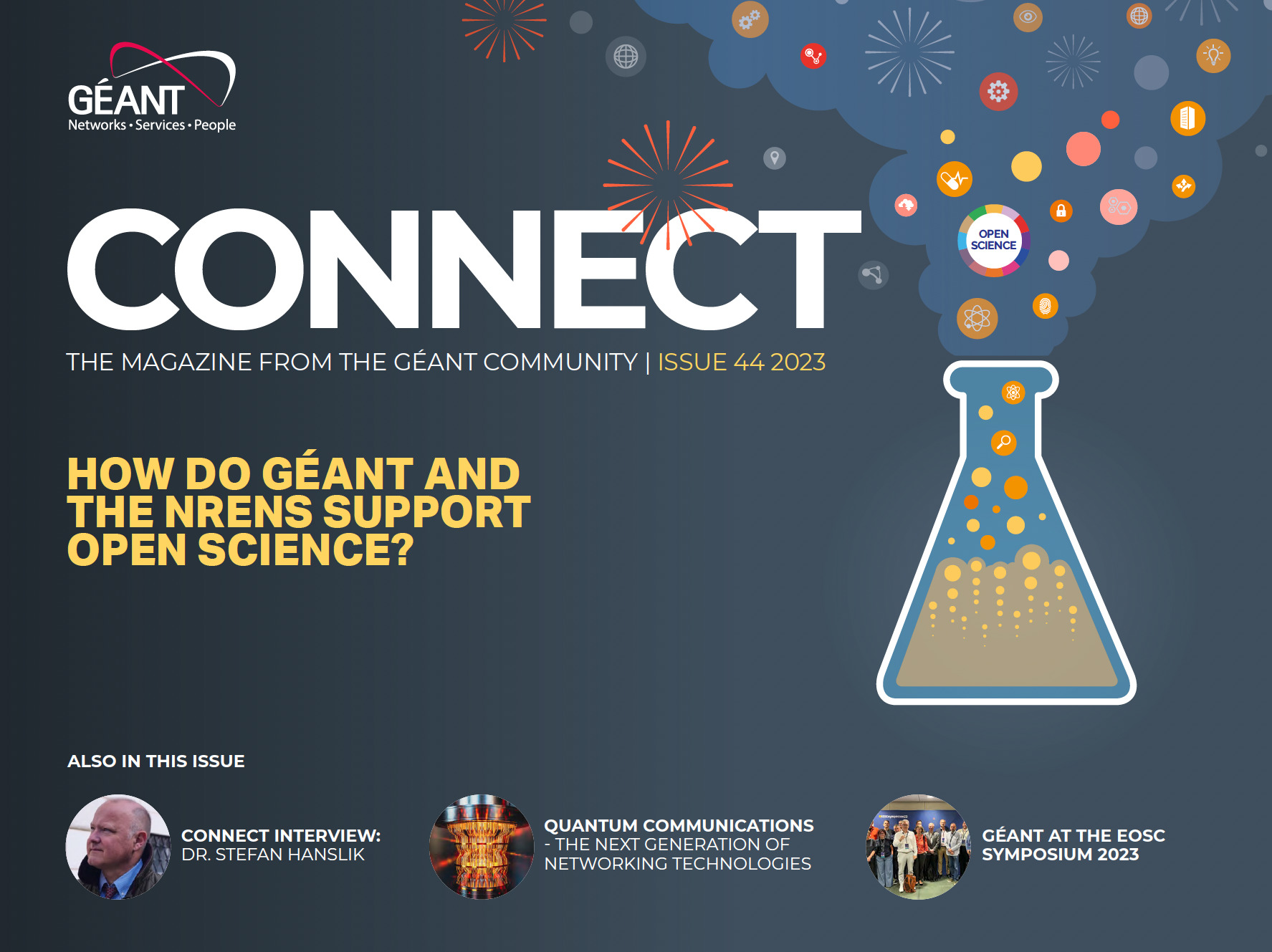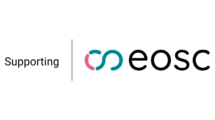 Librarian and information system specialist at the Information Management System Institute (IMSI) of the Athena Research Centre, Elli is also the OpenAIRE coordinator for Greece and she is involved in several projects such as EOSC, the Greek project HELIX working on the development of the country’s digital infrastructure for research and ARGOS, the OpenAIRE service for Data Management Plans. She was recently elected to be part of the OpenAIRE Executive Board as a member supporting Services. She tells us more about her work and passion for Open Science and research data management for our community.
Librarian and information system specialist at the Information Management System Institute (IMSI) of the Athena Research Centre, Elli is also the OpenAIRE coordinator for Greece and she is involved in several projects such as EOSC, the Greek project HELIX working on the development of the country’s digital infrastructure for research and ARGOS, the OpenAIRE service for Data Management Plans. She was recently elected to be part of the OpenAIRE Executive Board as a member supporting Services. She tells us more about her work and passion for Open Science and research data management for our community.
Elli, in your opinion, what are the most important elements of Open Science?
I will distill my answer to two elements that I believe are fundamental, from a sociological point of view, in the evolution of our society and, therefore, its expansion in the digital world: collaboration and inclusivity. Firstly, collaboration is integral because as humans, our development is deeply influenced by our surroundings and the individuals with whom we interact. Consequently, we become a reflection of the communities we inhabit. Secondly, inclusivity is of paramount importance. It is essential because even seemingly outlandish ideas, to some, have demonstrated their value and potential to save lives or drive innovation. True progress should embrace the non-discriminatory expression and application of diverse ideas in a participatory fashion.
In Open Science, and most prominently in EOSC that puts Open Science principles into practice, both elements are prioritised and requested at the policy, technical and operational levels. All stakeholders are engaged in realising a trusted shared ecosystem for research and innovation in their own capacity, technologies and settings. That creates the opportunity for enhanced collaboration across countries and domains promoting interdisciplinary and diversity in the process. Even more so, we see that the political leadership is considering the input of the epistemic community, expressed as data or policy briefs, for evidence policymaking, which can only have positive results, such as leading to more democratic societies rather than based on intuition or ideology.
What do you think are the challenges in Open Science and what is the community doing to overcome them?
Today, we see that the European research community collaborates in the conceptualisation and implementation of the technological aspects of Open Science, particularly through EOSC, as it is vital to create the technical framework where new technologies will be applied for FAIR data to be realised, and within the remits of which community will be able to navigate and use them. But, to establish literacy in actively practicing Open Science, I see that we still lack the dedicated policy actions and funds for the engagement and capacity building of the long tail of science. The introduction of data stewards is significant for research data management support, but we equally need to ensure that existing roles, most importantly students, professors, and librarians, are not neglected but rather are educated and up/re-skilled to feel confident and be competent in their own capacity in Open Science ecosystems. The funds and activities from/for EOSC provide a good starting point towards this direction, but still national bodies in education, digital governance, science, technology and innovation, need to promote collaboration at national level and support research careers at all levels.
Research data management needs have been rapidly changing and will continue to do so as new technologies arise. What are some of the key trends among users?
I am happy to share some insights from the perspective of Data Management Plans (DMPs) and FAIR assessments, representing both the EOSC-A FAIR Metrics and Data Quality Task Force where I actively contribute, and the forthcoming Open Science Trails project coordinated by OpenAIRE.
Open Science Trails (OSTrails) is the successful candidate project that will be funded under the topic Enabling an operational, open and FAIR EOSC ecosystem (2023) (HORIZON-INFRA-2023-EOSC-01). Open Science Trails (OSTrails) aims to advance processes and instruments for Planning, Tracking, and Assessing scientific knowledge production beyond state-of-the art, working with various national and thematic contexts, improving existing infrastructure, and connecting key components to enable an operational, open and FAIR EOSC ecosystem. The project will start in 2024 and engages all key service providers for DMPs, FAIR Assessment Tools, Scientific Knowledge Graphs (SKGs) and their users’ communities to collaboratively achieve the necessary standards and design the pathways to streamlining FAIR and machine actionable DMPs in Europe.
At the individual level, we see researchers are either providing their services to EOSC or providing EOSC with knowledge and data (indirectly). Through the survey that we conducted at the EOSC-A FAIR Metrics and Data Quality Task Force, we captured the behavior of those researchers who find solutions for their FAIR assessments in the different tools that have emerged, such as the FAIR Evaluator, F-UJI or the OpenAIRE Metadata validator. However, it was observed that, although the community wants to take up and implement the FAIR concept, especially to comply with EU and national RDM policies, they are still unsure who to turn to and even which FAIR assessment tools to trust as they all present inaccuracies in the produced results.
What is ARGOS and how does it benefit the community?
Thank you for your interest in ARGOS! As the product manager, I am particularly happy to answer this question. ARGOS is the OpenAIRE service for DMPs. It is based on the open source OpenDMP software and is accessible from the OpenAIRE catalogue and the EOSC portal.
ARGOS assumes the role of an active DMP platform that goes beyond providing researchers with structured forms and instructions to write their DMPs. Through ARGOS, we enable researchers to actively prepare and manage their DMPs by connecting our platform to other scientific services, e.g. data repositories, publications, notebooks, scientific registries, and SKGs. We view DMPs as integral components of research and treat them as FAIR outputs by, among other things, assigning DOIs and licenses to them and applying semantics to support the creation of qualified references.
To write a DMP, a lot of information seeking, writing, publishing, and cross-referencing is involved. We automate these processes in ARGOS to help researchers easily navigate their RDM activities and get a positive experience out of the rather complex and mandatory nature of data management planning. Most importantly, through our ARGOS community, we exchange knowledge, collect demands, and act as DMP liaisons in the RDM chain to ensure that DMP specifications are understood and fulfilled by everyone along the way.
How does the future of Open Science look like in Greece?
Bright and colourful, and I feel extremely lucky to be collaborating with so many amazing colleagues and professionals across Greek institutions and initiatives to collectively realise Open Science in the Greek research web. That being in my capacity as the OpenAIRE NOAD in Greece, as associate researcher in EOSC projects with regional and/or national interests, such as the NI4OS-Europe project coordinated by GRNET, as well as assisting the President of the Hellenic Open Science Initiative (HOSI).
Undoubtedly, the HOSI has been an enabler towards progressing Open Science in Greece as it has led to better communication of everyone involved in Open Science, in one way or another. Together, its members, we have achieved the publication of our proposal for a National Open Science Plan (NOSP) in Greece, parts of which have been transposed to the Digital Strategy of the Ministry of Digital Governance. Currently, HOSI runs three working groups (policies-education-software) having invited more people to contribute to the second edition of the NOSP, a national library of Open Science resources and a GitHub repository for the collection of national contributions.
The role of the General Secretariat for Research and Innovation (GSRI) in national Open Science activities, also serving as the National Point of Reference (NPR) for Open Science in the EU, is encouraging. Particularly, GSRI has committed to the new ERA actions that are relevant to Open Science and we work with them to introduce Open Access and Open Science requirements in the new national funding schemes. In terms of infrastructures for Open Science, GSRI has invited EU experts to examine the situation in Greece and advise on the next funding for RIs. You may find more information in this Policy Support Facility (PSF) report.
Find out more about OpenAIRE and Elli’s work at https://www.openaire.eu/blogs/blogger/ellipapa

Read or download the full magazine here







